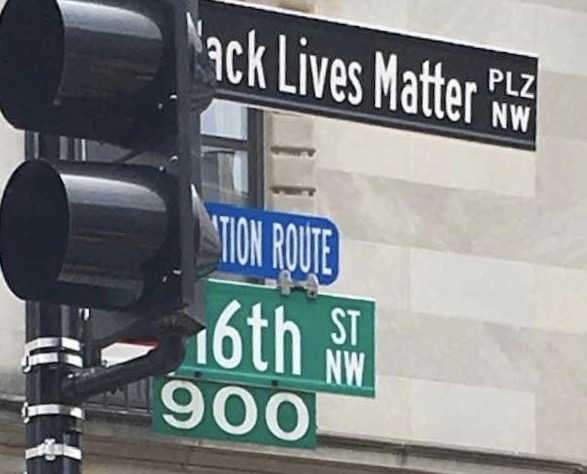Menu of Recommendations for Racial Equity in a New Administration
From the Center for American Progress, https://www.americanprogress.org/issues/race/reports/2020/11/13/492887/time-now-create-white-house-office-racial-equity/
There are several ways for the Biden administration to structure efforts across the federal government to ensure racial equity and eliminate the racial wealth gap.
Create a White House Racial Equity Office
In the past, U.S. presidents have used executive orders to establish goal-oriented offices. Former President Bill Clinton, for example, created the National Economic Council under executive order in 1992 in an effort to prioritize the American economy and “coordinate the economic policymaking process with respect to domestic and international economic issues.”16 Under Clinton, this office helped to establish “strong procedural norm” throughout the administration’s economic policy initiatives.17 More recently, former President Barack Obama signed an executive order establishing the White House Office of Health Reform to help lead the executive branch’s efforts to improve access to and quality of health care.18 This included coordinating policy development with the Domestic Policy Council, National Economic Council, Council of Economic Advisers, Office of Management and Budget, U.S. Department of Health and Human Services, Office of Personnel Management, and other executive departments and agencies that were deemed appropriate. The Office of Health Reform helped successfully shepherd the Affordable Care Act through Congress and oversaw its implementation. These two models should be used as a roadmap for the creation of a White House Racial Equity Office. The Biden administration should build on this history and create this office in an effort to prioritize racial equity and ensure that these policies are implemented during the administration, chief among them action to shrink the racial wealth gap.
The Racial Equity Office could formally reside within the Domestic Policy Council or the National Economic Council. In order to be effective, the president should direct federal agencies—especially the departments of the Treasury, Commerce, and Health and Human Services—to cooperate with the office through executive order. Each federal agency should have dedicated staff that will work with the office on administration priorities, either through the creation of racial equity office or dedicated liaison staff in the deputy secretary’s office within each agency. An empowered White House Racial Equity Office would send a strong signal to all federal agencies of the importance and need for aggressive and concerted action to systematically shrink the racial wealth gap. Ensuring that the White House and all federal agencies are taking active roles to support racial equity throughout government over time could yield meaningful systematic change long beyond the administration’s term.
Assign a senior adviser to the president on racial equity
Another option available is for the new administration to appoint a senior adviser to the president on racial equity. This individual would be charged with coordinating administrationwide efforts to close the racial wealth gap as well as advancing equitable economic policies across the federal government. Importantly, the senior adviser would be an important voice in White House policy development processes concerning the racial wealth gap and broader economic policies to ensure equitable outcomes.
To successfully shrink the racial wealth gap, the federal government will need to put several policies into place across a range of issue areas, from health care to tax policy. For example, the senior adviser to the president would not just oversee an initiative to promote Black-owned small businesses, but would help craft an overall economic recovery strategy ensuring that Black-owned small businesses and small business owners of color more broadly—who tend to have less access to traditional financial institutions—can easily access financial support. Given the breadth and scope of this work, the senior adviser to the president would need the support of dedicated staff with relevant expertise who could be detailed from the appropriate federal agencies.
To ensure collaboration and accountability across the federal government, the senior adviser to the president should regularly coordinate efforts by the National Economic Council, Domestic Policy Council, Office of Management and Budget, Council of Economic Advisers, Office of Cabinet Affairs, Office of Legislative Affairs, and Office of Intergovernmental Affairs. Additionally, the senior adviser should work directly with the president or the president’s chief of staff to develop the administration’s policy agenda, introduce opportunities for racial equity within the administration, and coordinate data collection and reporting requirements across all policy divisions.
The appointment of a senior adviser to the president with a clear mandate to close the racial wealth gap could be an effective alternative to creating a formal White House Racial Equity Office. This option would ensure that policy directives from the president are carried out in a swift manner. From day one, the senior adviser could begin to guide the administration on how to implement racial equity measures while having the direct backing and support of the president and the most senior White House leadership as a tool to hold administrative officials accountable.
Additional options for government agencies and offices
In addition to the options laid out above, the Biden administration should also make internal policy process changes to the Executive Office of the President as well as across federal agencies. Below are additional steps the new administration could take to improve racial equity and shrink the racial wealth gap.
- The Office of Management and Budget should start conducting racial equity assessments on policy measures. In doing so, the office would ensure that policies are advancing the goals of the administration through data collection and analysis, production of reports, and other evaluations and measurements.
- In staffing White House policy positions, particularly economist positions, special consideration should be given to experts on race and the racial wealth gap. This prioritization is particularly important for staff economists, who are often academics or on loan from other agencies for temporary assignment. The administration should hire staff at the Office of Management and Budget and Council of Economic Advisers who have a background in race- and demographic-focused metrics. Furthermore, there should be a member of the Council of Economic Advisers whose primary academic focus is race.
- Through executive action, the new administration could add an additional principal function that specifically requires the National Economic Council to focus on eliminating the racial wealth gap. Currently, the council’s four areas of focus include coordinating policymaking for domestic and international economic issues; coordinating economic policy advice for the president; ensuring that policy decisions and programs are consistent with the president’s economic goals; and monitoring implementation of the president’s economic policy agenda.20 By adding a principal function specifically around elimination of the racial wealth gap, the Biden administration would help embed the importance of this issue beyond the National Economic Council alone. Recommended language could include, for example, the following area of focus: ensuring that economic policy decisions help to eliminate the racial wealth gap.
- Establish an interagency task force that would provide concrete steps each federal agency could take toward increasing wealth for Black communities and communities of color. This task force could set goals or areas of focus for each agency, and cabinet secretaries should be required to implement a plan to reduce racial and economic disparities in their respective areas within the first year of the administration. Ideally, the White House Racial Equity Office or the senior adviser to the president would co-lead this interagency task force with a senior official from the U.S. Department of the Treasury.
- Encourage agencies to prioritize the collection of more precise data on race and wealth on a consistent basis. Agencies should set goals around research and data collection, data disaggregation, and the expansion of accessibility of data to researchers and the public. By doing so, agencies could provide the president with relevant information on policy implementation beyond cost, such as the potential impacts of the policy on people of color and impacts on the racial wealth gap.
Legislative option
The president could work with Congress to modify the Employment Act of 1946, which authorized the formation of the Council of Economic Advisers.21 More specifically, Congress could modify the duties of the council to include efforts to reduce the racial wealth gap. With this simple addition to the current list of duties—”to develop and recommend to the president national economic policies to foster and promote free competitive enterprise, [to reduce the racial wealth gap,] to avoid economic fluctuations or to diminish the effects thereof, and to maintain employment, production, and purchasing power”22—Congress would send a strong message that the full U.S. government is serious about this critical issue. The adoption of this language into an existing council’s mission would demonstrate the structural changes that are needed to eliminate the racial wealth gap. By codifying this language, the wealth gap would become a central component of federal strategies to improve overall economic well-being.
Conclusion
For far too long, Black Americans have unjustly suffered under government systems that operate to intentionally disadvantage people of color. The ongoing national COVID-19 crisis and recent national protests in response to racial violence have made clear that leaders must prioritize the needs of Black people and communities of color, who have been most negatively affected by this pandemic and by centuries of policies rooted in systemic racial oppression.
The Biden administration must begin national economic recovery efforts by addressing the racial wealth gap through measures rooted in racial equity that can be sustained for many years to come. It is not enough to simply acknowledge that disparities persist. Leaders at all levels of the federal government must be intentional in their efforts to identify and uproot the systems of oppression that have persisted for far too long. This issue can no longer be swept under the rug. It is time for the next administration to rectify the historical harms committed against Black people and make significant efforts toward closing the racial wealth gap.
Danyelle Solomon is the vice president of Race and Ethnicity Policy at the Center for American Progress. Lily Roberts is the director of Economic Mobility at the Center.





